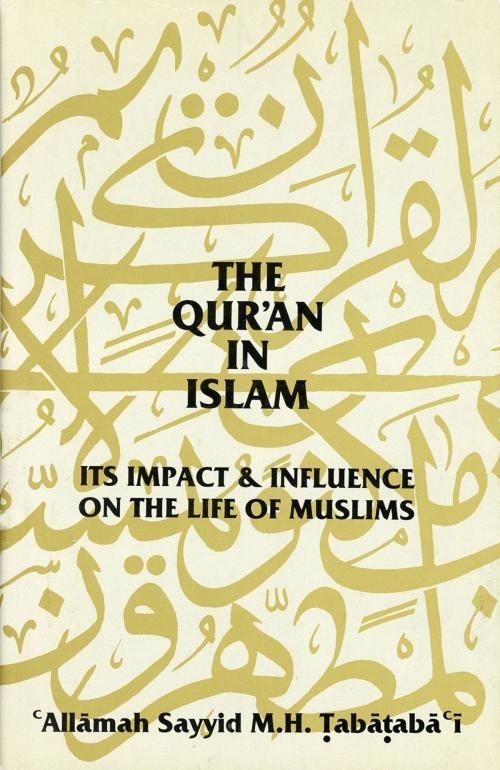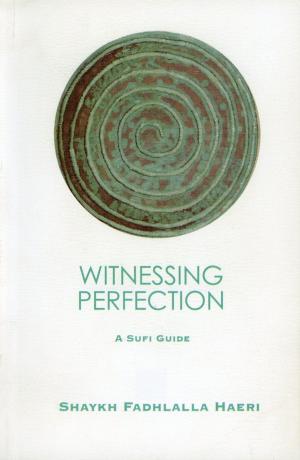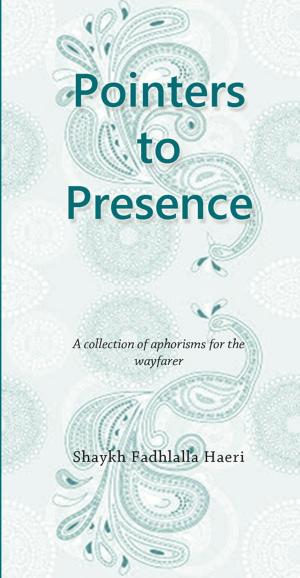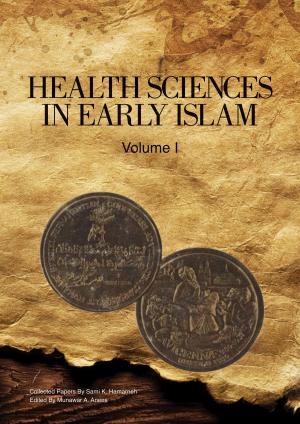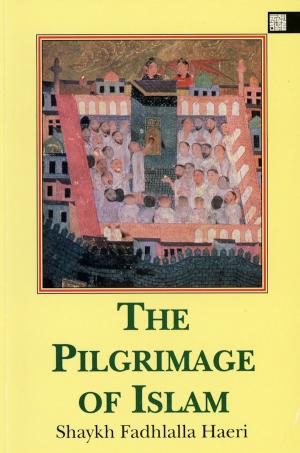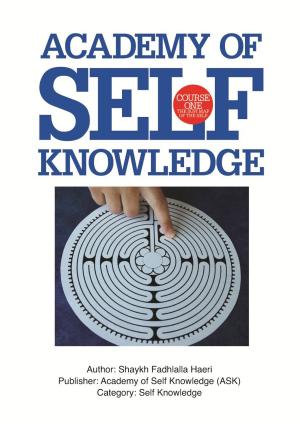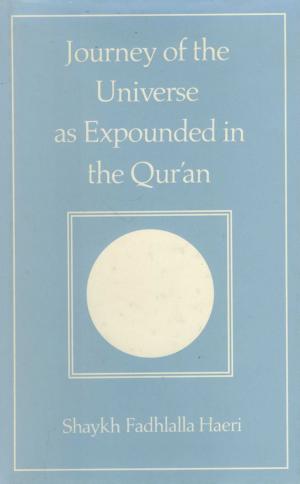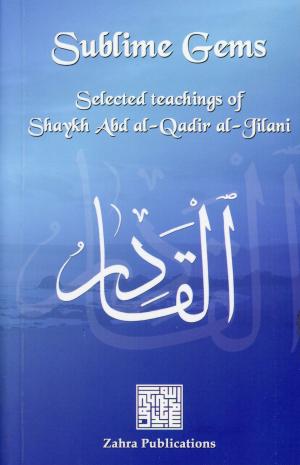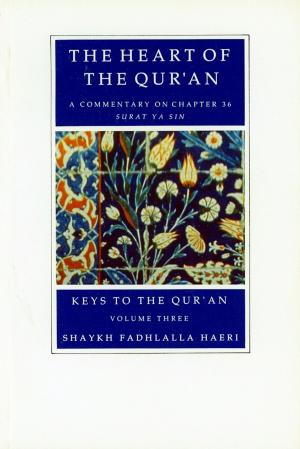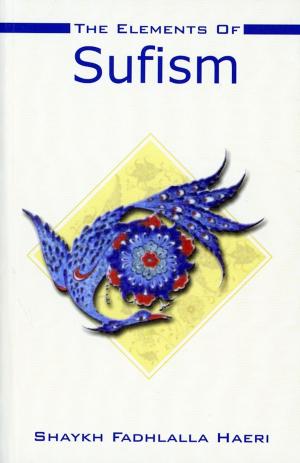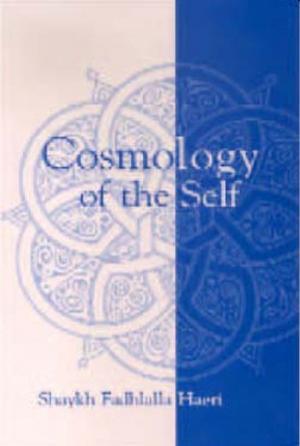The Qur’an in Islam
Its Impact & Influence on the Life of Muslims
Nonfiction, Religion & Spirituality, Middle East Religions, Koran, Islam| Author: | `Allamah Sayyid M. H. Tabataba`i | ISBN: | 9781919826868 |
| Publisher: | Zahra Publications | Publication: | March 12, 1987 |
| Imprint: | Language: | English |
| Author: | `Allamah Sayyid M. H. Tabataba`i |
| ISBN: | 9781919826868 |
| Publisher: | Zahra Publications |
| Publication: | March 12, 1987 |
| Imprint: | |
| Language: | English |
From a general discussion of the Holy Qur'an's essential relevance to humanity, stressing God's guidance of all His creatures toward happiness and well-being, the author proceeds to show how the Qur'an contains the fundamental roots of Islam and the proof of prophethood as the Word of God. Copious quotations from the Qur'an are given to illustrate its teachings, its exoteric and esoteric dimensions and the meaning of exegesis. The eternal validity of Qur'anic revelation is examined in depth, together with the attitudes of both Muslim and non-Muslim writers to the questions of Revelation and Prophethood. The relationship of the Qur'an to the sciences shows to what extent it encourages us to study all manner of natural and physical sciences, as well as philosophy, literature and every available branch of knowledge. The book closes with a brief description of how the Qur'an has come down to us.
"THE QUR’AN IN ISLAM should be read now more than ever before because the current aberrations propagated in the name of Islam in general and Shi`ism in particular necessitate the uncompromising and clear statement of the traditional Islamic perspective as expounded by such masters as `Allamah Tabataba`i. Moreover, the present book marks an important addition to the literature in English on the central theophany of Islam, the Noble Qur’an."
- From the Foreword by Seyyed Hossein Nasr
ABOUT `ALLAMAH SAYYID M.H. TABATABA`I
`Allamah Sayyid Muhammad Husayn Tabataba`i – may God shower His blessings upon his soul – was one of the great masters of the traditional sciences in Iran during the 20th century. He was born in 1903 into a distinguished family of scholars in Tabriz, where he also carried out his earliest religious studies. Like many Shi`ite scholars, he pursued more advanced studies in Najaf and then returned to Tabriz. But in 1945, following the Soviet occupation of Azerbaijan, he came to Qum, where he settled until his death in 1982. From this centre of Shi`ite learning the light of his knowledge and presence began to disseminate, and continued to spread, among students not only of that city but also throughout Iran, and even beyond.
From a general discussion of the Holy Qur'an's essential relevance to humanity, stressing God's guidance of all His creatures toward happiness and well-being, the author proceeds to show how the Qur'an contains the fundamental roots of Islam and the proof of prophethood as the Word of God. Copious quotations from the Qur'an are given to illustrate its teachings, its exoteric and esoteric dimensions and the meaning of exegesis. The eternal validity of Qur'anic revelation is examined in depth, together with the attitudes of both Muslim and non-Muslim writers to the questions of Revelation and Prophethood. The relationship of the Qur'an to the sciences shows to what extent it encourages us to study all manner of natural and physical sciences, as well as philosophy, literature and every available branch of knowledge. The book closes with a brief description of how the Qur'an has come down to us.
"THE QUR’AN IN ISLAM should be read now more than ever before because the current aberrations propagated in the name of Islam in general and Shi`ism in particular necessitate the uncompromising and clear statement of the traditional Islamic perspective as expounded by such masters as `Allamah Tabataba`i. Moreover, the present book marks an important addition to the literature in English on the central theophany of Islam, the Noble Qur’an."
- From the Foreword by Seyyed Hossein Nasr
ABOUT `ALLAMAH SAYYID M.H. TABATABA`I
`Allamah Sayyid Muhammad Husayn Tabataba`i – may God shower His blessings upon his soul – was one of the great masters of the traditional sciences in Iran during the 20th century. He was born in 1903 into a distinguished family of scholars in Tabriz, where he also carried out his earliest religious studies. Like many Shi`ite scholars, he pursued more advanced studies in Najaf and then returned to Tabriz. But in 1945, following the Soviet occupation of Azerbaijan, he came to Qum, where he settled until his death in 1982. From this centre of Shi`ite learning the light of his knowledge and presence began to disseminate, and continued to spread, among students not only of that city but also throughout Iran, and even beyond.
